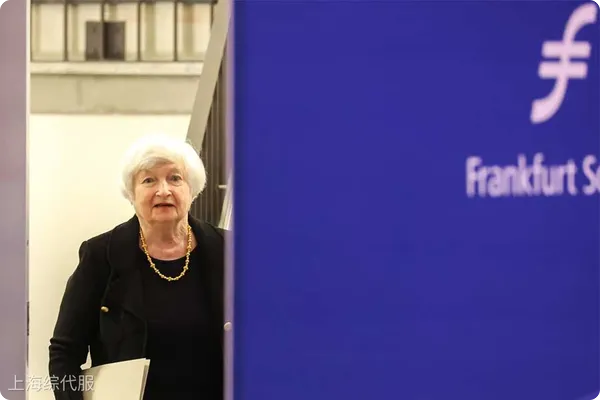On May 21, U.S. Treasury Secretary Yellen visited Frankfurt, Germany, to repeat Chinas excess capacity topic, calling on the U.S. and its Western allies to respond in a united way to Chinas growing manufacturing power.

Collaboration and Green Industry
During her visit, Yellen called on the United States and Europe to strengthen cooperation on key minerals, as the current supply chain is overly concentrated in China. In addition, she also defended U.S. green industry subsidies, saying this would not only create opportunities for the United States but also benefit Europe. She said that by 2022, U.S. and European trade in green energy products would have exceeded $2 billion and European countries could become leaders in this field. Yellen noted that with the U.S. increasing production of green energy products, it would reduce the cost of global clean energy technologies and benefit people and economies around the world.
However, German officials were cautious about this. German Prime Minister Schultz previously noted in a speech that European manufacturers and some U.S. manufacturers had achieved success in the Chinese market and also sold a large number of cars produced in Europe to China. The German economy’s reliance on the Chinese market made it more cautious when taking harsh measures, fearing that this could lead China to reject German automakers such as BMW, Volkswagen and others.
The Chinese response
The Chinese government responded quickly to Yellen’s remarks and the possible trade measures that the US could take against China. A spokesman for the Chinese Ministry of Commerce said the US government abused trade protectionist measures to distort the market, calling on the US side to immediately correct the wrong practices and cancel tariffs imposed on China. China’s Foreign Ministry spokesman Wang Wengbin also stressed at a press conference on May 22 that China’s development and opening up brings opportunities to Europe and the world, not risks, and that protectionism will not solve the EU’s problems, but will only protect behind and lose the future.
Wang Jinbin said that China and Europe, as the second largest trade partner of each other, are important forces in building an open world economy, and should solve specific economic and trade issues through dialogue and consultation. he hopes that the European side will abide by its commitments to support free trade and oppose protectionism, and work with China to safeguard Chinas economic and trade cooperation.
Warming up the trade war
In the current global economic environment, the trade war between China and the United States is heating up. U.S. President Joe Biden has decided to significantly raise tariffs, effectively banning the export of many Chinese industrial products to the U.S. market, including metals, electronics and electric vehicles. In response, China has also imposed sanctions on some U.S. defense industry companies and their senior executives and threatened to take more retaliatory measures.
In addition, as the EU may follow U.S. tariff barriers against China, China-Europe trade relations also face new challenges. The Brussels China Trade Commission issued a statement on its social network X account stating that the Chinese government intends to take some countermeasures, including raising European car export tariffs to China by up to 25%. This decision will first hit the German automotive industry, which has already reduced its profits by 20% in three months prior to 2024.


 Follow customer service WeChat
Follow customer service WeChat